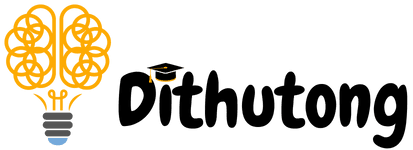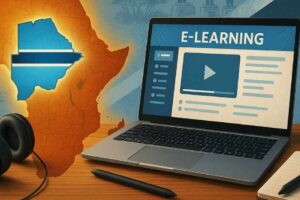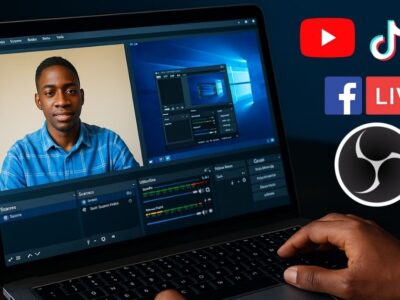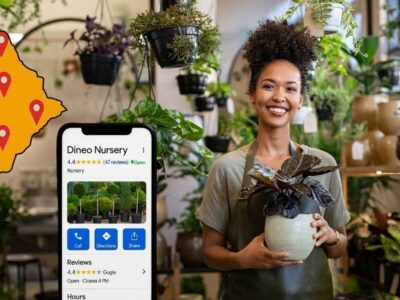
What is an Learning Management System (LMS)? Guide to Choosing the Right LMS for Botswana
- Posted by Tshiamo Tawele
- Categories E-Learning
- Date October 18, 2025
In Botswana’s rapidly evolving digital landscape, many forward-thinking businesses and educational institutions are seeking more effective ways to deliver training and upskill their workforce. According to UNESCO, sub-Saharan Africa’s adoption of e-learning solutions is accelerating, with estimates of strong year-on-year growth in online education. This momentum underscores the importance of Learning Management Systems (LMS) to meet demand for accessible, efficient, and culturally relevant training options.
In this guide, you will learn what an LMS is, why localised platforms like Dithutong matter, and how to evaluate and choose the right LMS for Botswana’s unique context. The focus is practical and evidence-driven, with examples, checklists, and Botswana-specific considerations you can apply immediately.
What Is an LMS? Botswana’s Top Learning System (Dithutong)
An LMS is software that hosts, manages, delivers, and measures training or educational programs online. At a minimum it centralizes content, enrolments, assessments, and reporting. At its best it becomes a learning hub for people, processes, and data, improving performance while reducing training overhead.
In Botswana, organizations often work across diverse languages, time zones, and connectivity levels. A modern LMS helps teams overcome these barriers with mobile-first access, adaptable media, offline capabilities, and tools for microlearning. These features allow a retail chain in Gaborone to onboard store staff quickly, a mine in the North-West District to deliver safety refreshers on site, and a professional association to certify members countrywide without the cost of travel.
Dithutong is a Botswana-focused e-learning platform designed for these realities. It gives instructors and organizations user-friendly course building, learner analytics, and local support. Its emphasis on microlearning encourages short, focused lessons that fit the rhythms of real work. The platform’s approach to localization, including Setswana interface options and Pula billing where applicable, helps learners feel at home and helps decision-makers budget with clarity.
Why Dithutong is notable for Botswana
- Local fit, global quality: Tools are tuned for Botswana’s context, while still aligning with global best practices for online learning.
- Ease for non-technical teams: Course builders can drag-and-drop content, set due dates, and publish without developer help.
- Support for growth: Start small with one department, then scale across regions and functions with consistent reporting.
- Community and monetization: Independent experts can publish courses, build audiences, and create income streams while serving local learners.
For organizations deciding between international LMS brands and local options, Dithutong offers familiarity with Botswana’s learning culture, which can shorten the adoption curve and improve completion rates.
What Is a Learning Management System (LMS)?
An LMS is a digital environment where content, people, and outcomes intersect. Think of it as the control room for learning. Instructors plan and upload resources, learners access those resources and complete activities, managers monitor progress, and executives review reports to guide decisions. Instead of sending files by email or juggling spreadsheets, you work from a single source of truth.
Core building blocks of an LMS
- Content hosting: Upload videos, PDFs, slide decks, e-books, SCORM or xAPI packages, and interactive activities. Many systems support industry standards like SCORM and xAPI for reliable tracking across tools.
- Learner management: Enroll learners individually or by group, set prerequisites, manage cohorts, and automate reminders for due dates.
- Assessment and feedback: Build quizzes, assignments, and peer review workflows. Provide immediate feedback, grading rubrics, and certificates on completion.
- Analytics and reports: Track completion, time-on-task, quiz performance, and skills acquisition. Export dashboards to share with stakeholders.
- Integrations: Connect HR, CRM, or payroll systems, enable single sign-on, and integrate video conferencing or proctoring tools.
Why this matters in Botswana
Many organizations operate across urban and rural settings, where connectivity can vary. A resilient LMS supports offline learning through mobile apps or pre-cached content, so learning continues during network fluctuations. Language also influences adoption. Interfaces and content adapted for Setswana or other local languages can improve comprehension and reduce drop-off. Dithutong’s mission is to make these adjustments practical, lowering the barriers for Botswana educators and organizations that want to teach online without losing cultural relevance.
Beyond delivery mechanics, the LMS can function as a community space. Discussion forums, peer-learning activities, and instructor Q&A nurture collaboration and confidence. This aligns with Botswana’s Vision 2036 ambition for a knowledgeable, productive, and innovative nation.

Key Features & Functions of an LMS
When comparing platforms, look beyond the marketing pages and focus on the features that map to your training goals, compliance needs, and budget. The list below expands the typical checklist and adds Botswana-specific notes so you can evaluate with confidence.
- Course creation and content management: Build structured learning paths with modules, lessons, and checkpoints. The best systems let you reuse content across courses, embed rich media, and add captions or transcripts for accessibility. Check for responsive design so lessons display well on phones.
- Tracking and reporting: Monitor progress per learner, per team, and per course. Custom dashboards should surface completion rates, average scores, overdue items, and training time. Export to CSV or connect to your BI tool for deeper analysis.
- Assessment tools: Multiple question types, randomized question banks, timed quizzes, open-response marking, peer review, and assignment plagiarism checks. You need evidence of learning, not just time spent logged in.
- Offline access: Mobile app with offline mode or downloadable modules. This is critical where connectivity is intermittent. Confirm how progress syncs when learners reconnect.
- Regional language support: Interface localization for Setswana and the ability to upload translated content. Small language touches can make a big difference in engagement.
- Scalability and customization: Performance at hundreds or thousands of users, custom branding, role permissions, and the option to add fields you need for reporting or compliance.
- Security and privacy: Encryption at rest and in transit, role-based access controls, audit logs, and data residency options where possible. Botswana’s data protection expectations are rising, so transparency on storage and access is essential.
- Accessibility: Conformance with WCAG guidelines helps learners with disabilities participate fully. Look for keyboard navigation, screen reader support, alt text, and captioning.
- Integrations that save time: Single sign-on, HRIS sync for new hires, payment gateways for paid courses, live-class integrations (Zoom, Google Meet), and calendar sync for deadlines.
- Certification and CPD: Auto-issue certificates, manage expiries, and notify learners before credentials lapse. This is especially helpful for safety, compliance, or professional licensing.
- Instructor experience: Bulk upload content, clone courses, comment on submissions, and send announcements. If building content feels slow, adoption will stall.
- Learner experience: Clean navigation, clear due dates, mobile-first design, bite-sized lessons, and easy ways to ask for help. Good UX is the biggest driver of completion rates.
Content standards to know: If you will reuse interactive content or buy third-party modules, choose an LMS that supports SCORM or xAPI. Standards reduce vendor lock-in and future-proof your library.
Tip for Botswana teams: Pilot your LMS with a small cohort that mirrors your widest constraints. Include a rural location, a low-spec smartphone, and at least one learner who prefers Setswana. Measure completion rates, time-on-task, and satisfaction before rolling out at scale.
How to Choose the Right LMS (Criteria & Considerations)
Choosing an LMS is part technology decision, part change-management exercise. Use the criteria below to compare options, then validate through a pilot with real learners and real content.
- Pricing fit for emerging markets: Map license costs, implementation services, and ongoing admin time. Clarify billing in Pula where available, and check for discounts for NGOs or educational institutions.
- Ease of use: Ask two non-technical staff members to build a simple course and a quiz during the demo. If they struggle, your adoption costs will rise.
- Mobile and offline: Confirm the mobile app experience, offline capability, and how media is compressed for low bandwidth.
- Language and culture: Interface localization, local date formats, currency displays, and templates that work for Botswana use cases such as safety toolboxes, customer service scripts, and regulatory refreshers.
- Support and training: Response times, local hours, knowledge base quality, and whether you get onboarding sessions for admins and instructors.
- Security and compliance: Request a security overview. Confirm access controls, data segmentation, password policies, and incident response processes. Ask where learner data is stored and how long it is retained.
- Integrations: If you run Google Workspace or Microsoft 365, confirm SSO options. If you plan to sell courses, confirm supported payment methods. If you run HRIS or payroll, confirm people data sync.
- Reporting depth: Verify that the metrics you need are available without heavy manual exports. Compliance teams usually require automated evidence of completion.
Total Cost of Ownership checklist
- Licenses or subscriptions for active users
- Implementation and training time
- Content creation effort, including translations and captioning
- Ongoing administration, such as enrolments and support
- Potential add-ons, such as advanced analytics or proctoring
Simple selection process
- Define use cases: Onboarding, compliance, sales enablement, service training, or public courses for revenue.
- Shortlist 3 platforms: Include at least one local option and one open-source option.
- Run a two-week pilot: Upload two courses, enrol a mixed cohort, test mobile and offline, and collect feedback surveys.
- Score and decide: Use weighted criteria. Prioritise user experience and reporting, since those determine real-world outcomes.
Top LMS Examples or Platforms for Local Organizations
There are many capable LMS platforms. The examples below illustrate how different approaches can fit local priorities. Always test with your content and devices.
- Dithutong (Botswana-focused): Designed for local instructors and organisations that want practical tools, straightforward publishing, and support that understands Botswana. Suitable for SMEs building job-ready skills libraries, NGOs scaling community programs, and independent experts who want to monetise courses. Strong on localisation and microlearning. Visit Dithutong’s resources for Botswana e-learning insights: Botswana eLearning: Definition, Benefits & Examples.
- Moodle (open-source): A global standard with a strong community. Highly customisable and cost-effective at scale, but you need technical capacity for hosting, updates, and security. Explore the project at moodle.org.
- Canvas (commercial): Known for intuitive design and rich integrations, widely used in higher education and corporate training. Consider license costs and implementation services. Product information at Instructure Canvas.
- TalentLMS (commercial): Cloud LMS that is quick to deploy for small and midsize teams, with multilingual support and solid reporting. Confirm offline options and pricing tiers. Learn more at talentlms.com.
How to compare these options
- Speed to value: How quickly can you launch a pilot course without technical help
- Mobile reality: How well do pages load on entry-level Android phones on 3G or inconsistent Wi-Fi
- Reporting depth: Can managers view team dashboards without exporting to spreadsheets
- Cost clarity: Are license, storage, and support costs predictable, and can you budget in Pula where relevant
- Localisation: Does the interface and content experience work for Setswana speakers and multilingual teams

Benefits of Using an LMS for Training/Education
Adopting an LMS delivers measurable value for both education providers and businesses. The benefits below reflect common Botswana use cases, such as compliance training for regulated sectors, customer service standards in retail, and skills development for youth employability.
- Greater access for distributed teams: Staff in Francistown, Maun, and Gaborone can learn on the same platform, at their convenience. Offline capability keeps learning consistent when connectivity dips.
- Faster onboarding and time to productivity: Role-based learning paths reduce the learning curve. New hires can complete essentials before day one, then continue with customer-specific modules.
- Evidence for compliance and audits: Automatically capture completion, scores, and certificates. This helps HR and compliance teams show due diligence during internal and external audits.
- Data-driven improvement: Use analytics to identify gaps, improve content, and personalise support. If a high-stakes module has low pass rates, intervene quickly with coaching or revised materials.
- Consistent quality at scale: Standardise service, safety, and product knowledge across locations. The LMS ensures everyone sees the latest version, not an outdated PDF.
- Reduced costs: Fewer classroom rentals and travel claims, less printing, and reusability of course assets. Savings can be redirected to content quality and incentives for completion.
- Better learner experience: Mobile-first design, microlearning, and interactive activities sustain attention. Social features like forums or peer reviews build community and confidence.
- Revenue opportunities for educators: Independent experts can package courses, reach local audiences, and create new income streams on platforms such as Dithutong.
Mini case example
A Botswana SME in the hospitality sector needed to standardize front-desk service across three locations. The team created a five-module LMS course with short videos, role-play checklists, and quick quizzes. Managers reviewed analytics weekly and coached low-scoring staff. Within eight weeks, complaints about check-in delays dropped, average review scores improved, and the cost of training per employee fell compared with classroom sessions. The lesson here is simple. Small, focused content paired with consistent measurement delivers results.
Conclusion
Finding the right LMS is a practical route to higher performance, lower training costs, and a more resilient learning culture. For Botswana-based organizations, the priorities are clear. Favor mobile-first delivery, offline access, and localization that respects the way your teams actually work. Insist on clear reporting so managers can act quickly. Choose a partner that supports you beyond the initial launch.
Local platforms like Dithutong combine these priorities with support that understands Botswana’s context. That alignment shortens the path from pilot to impact. If you are ready to explore the model, consider sharing your expertise on Dithutong or piloting a short internal course for your staff.
Recommended Reading
To delve deeper into e-learning opportunities in Botswana and to benchmark platforms, explore these resources:
- Botswana eLearning: Definition, Benefits & Examples for Modern Learners
- Benefits of Online Learning (eLearning): Advantages, Challenges & Tips
- Moodle Open-Source LMS
- Canvas by Instructure
- TalentLMS
- WCAG Accessibility Guidelines
- UNESCO Education and Technology
Frequently Asked Questions
What is a Learning Management System?
A Learning Management System (LMS) is software that hosts, delivers, and tracks educational or training programs in one centralized digital environment.
How do I choose an LMS?
Focus on budget, scalability, offline access, language support, and local customer service. Make sure it fits your organization’s size and training needs.
What are popular LMS platforms?
Some popular platforms include Dithutong (local to Botswana), Moodle, Canvas, and TalentLMS. Each has unique features, so compare based on your goals.
What is a Learning Management System in simple terms
An LMS is an online platform that stores your training content, delivers it to learners, and tracks completion and performance. It replaces email attachments and ad-hoc spreadsheets with a single system for enrolments, lessons, quizzes, and reports.
How do I choose an LMS for a Botswana-based organisation
Start with your use cases, such as onboarding or compliance. Shortlist three platforms that fit your budget. Insist on mobile-first design, offline access, Setswana localisation, clear reporting, and responsive support. Run a two-week pilot with real learners before committing.
Should I pick a local LMS or a global provider
Local platforms like Dithutong offer cultural alignment, regional support, and pricing that fits Botswana businesses. Global platforms can be powerful but may require more customisation and higher costs. The best approach is to pilot both a local and a global option, then compare outcomes.
Can we monetise courses in Botswana
Yes. Instructors and organisations can sell courses to the public using LMS e-commerce tools or platforms like Dithutong that already provide an audience and local support. Confirm available payment options during evaluation.
What is an LMS? Choosing the Right Learning Management System Guide to Learning Management Systems
— Dithutong - Online Courses & Elearning in Botswana (@dithutong) October 17, 2025
Discover how a tailored LMS empowers Botswana businesses to cut costs & boost results. Ready to optimize training?
Read more: https://t.co/dKFHPFGMjV #Botswana #eLearning
Digital entrepreneur, educator, and founder of Dithutong.
With years of experience in digital marketing, SEO, and web development, Tshiamo is passionate about empowering others to learn, teach, and thrive online. From running a national business directory to helping companies grow their visibility, he understands what it takes to turn knowledge into income.
Through Dithutong, he’s building a bridge between local talent and digital opportunity — making education flexible, accessible, and rooted in Botswana’s future.










